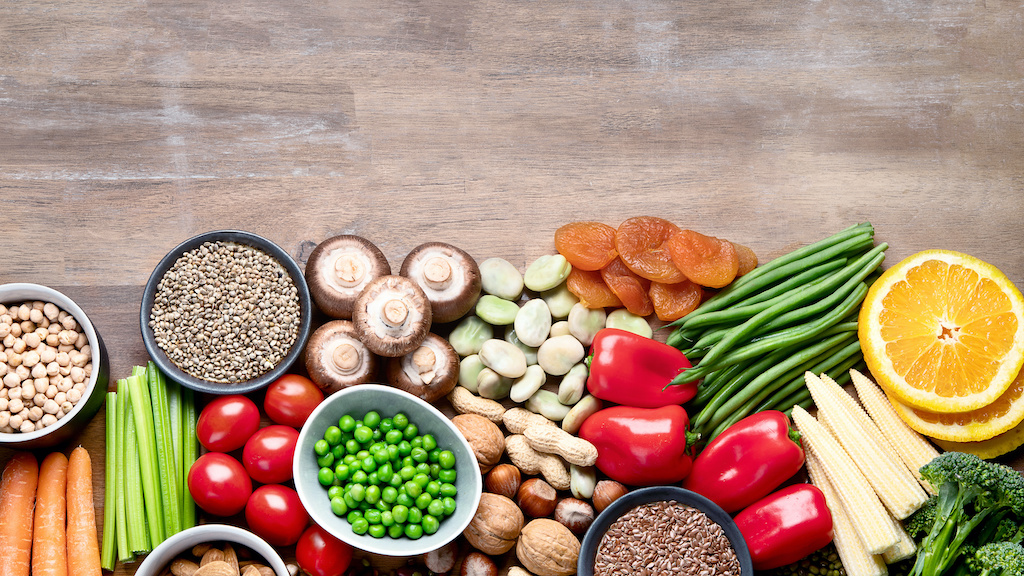Eating healthily by preparing meals at home takes less time than you might think. By following new eating habits, you can take care of your health while enjoying yourself. Discover 3 key habits to optimise your dishes and tips to help you prepare your meals.
Ban processed foods

Processed foods and other ready-made meals are mostly very high in calories and quite low in nutrients. Eating these foods too often increases the risk of developing chronic diseases, such as diabetes or obesity. If you want to eat healthy at home, avoid eating ready-made meals as much as possible and pay close attention to their nutritional properties by reading the labels.
For a healthy diet, nothing beats homemade food: By selecting all your ingredients from seasonal fruits and vegetables and fresh produce, you can create healthy meals for the whole family. Homemade food isn’t just tastier, but it will also be lower in calories and you will be able to vary your recipes more easily.
Our tip:
If you don’t have enough time to prepare your meals on a daily basis, why not follow the trend of batch cooking? Every week, cook several dishes at once. For each meal, all you have to do is reheat your homemade favourites!
Eat healthy foods

To stay in top shape, your diet must include at least 80% healthy foods, i.e. foods that have undergone as little processing as possible and their nutritional composition helps to provide the essential nutrients to stay in shape: Proteins, carbohydrates, fats, essential fatty acids, vitamins, minerals, fibre, etc.
Eat fruits and vegetables during every meal:
- Choose green vegetables: Cabbage, broccoli, green beans, asparagus, artichokes, etc.
- In smaller proportions, add vegetables that are rich in carbohydrates: Sweet potatoes, carrots, parsnips and pumpkin, for example.
- Fruits have a high sugar content, but if eaten raw, they provide a large amount of healthy nutrients, such as vitamins and antioxidants. Preferably, choose seasonal fruits.
Also include the following foods on your plate:
- Fish
- Organic eggs
- Seeds: Almonds, walnuts, hazelnuts, etc.
- Whole grains: Oatmeal, rye, bran, spelt, etc.
- Legumes, rich in nutrients and plant-based protein sources: Lentils, split peas, chickpeas, etc.
Our tip:
The key to a healthy diet is also good planning: Create a healthy shopping list so that you always have vegetables, fruit and fish in your fridge or freezer. Your list should also include basic foods to accompany and season your dishes: Rice cakes, wholewheat wraps, vinegar, high-quality vegetable oils, spices, aromatic herbs and so on.
Eat less sugar

Eating less sugar is also a good way to stay healthy for longer. Hyperglycemia encourages the occurrence of glycation, a chemical reaction caused by the binding of sugars to proteins. Over time, the glycated proteins accumulate and contribute to accelerating the aging process of tissues. When consumed in excess, sugars can also gradually cause ailments, such as diabetes or liver problems.
Quick sugars, such as glucose, cause a spike in blood sugar for a short period of time that triggers the cells around the body to react. This is because a high intake of glucose is considered toxic by the body. To meet your carbohydrate needs, choose foods with a lower glycemic index, which provide you with energy and keep you full for longer.
To eat healthily and reduce your daily sugar intake, here are some good tips to follow:
- Avoid adding sugar, syrup or honey to flavour your hot drinks or yoghurt.
- If you have a sweet tooth, choose fresh fruit instead of processed products, such as pastries: Fructose (fruit sugar) has the same sweetening power as glucose.
- Limit your consumption of soft drinks and even fruit juices as they are too high in sugar.
Our tip:
To succeed in limiting your sugar consumption, find alternatives. For example, replace sweets with dried fruit, make smoothies or homemade fruit juices without additives that are higher in vitamins, or sweeten your hot drinks with stevia instead of using table sugar.
Check out our Health & Fitness page for more advice.
